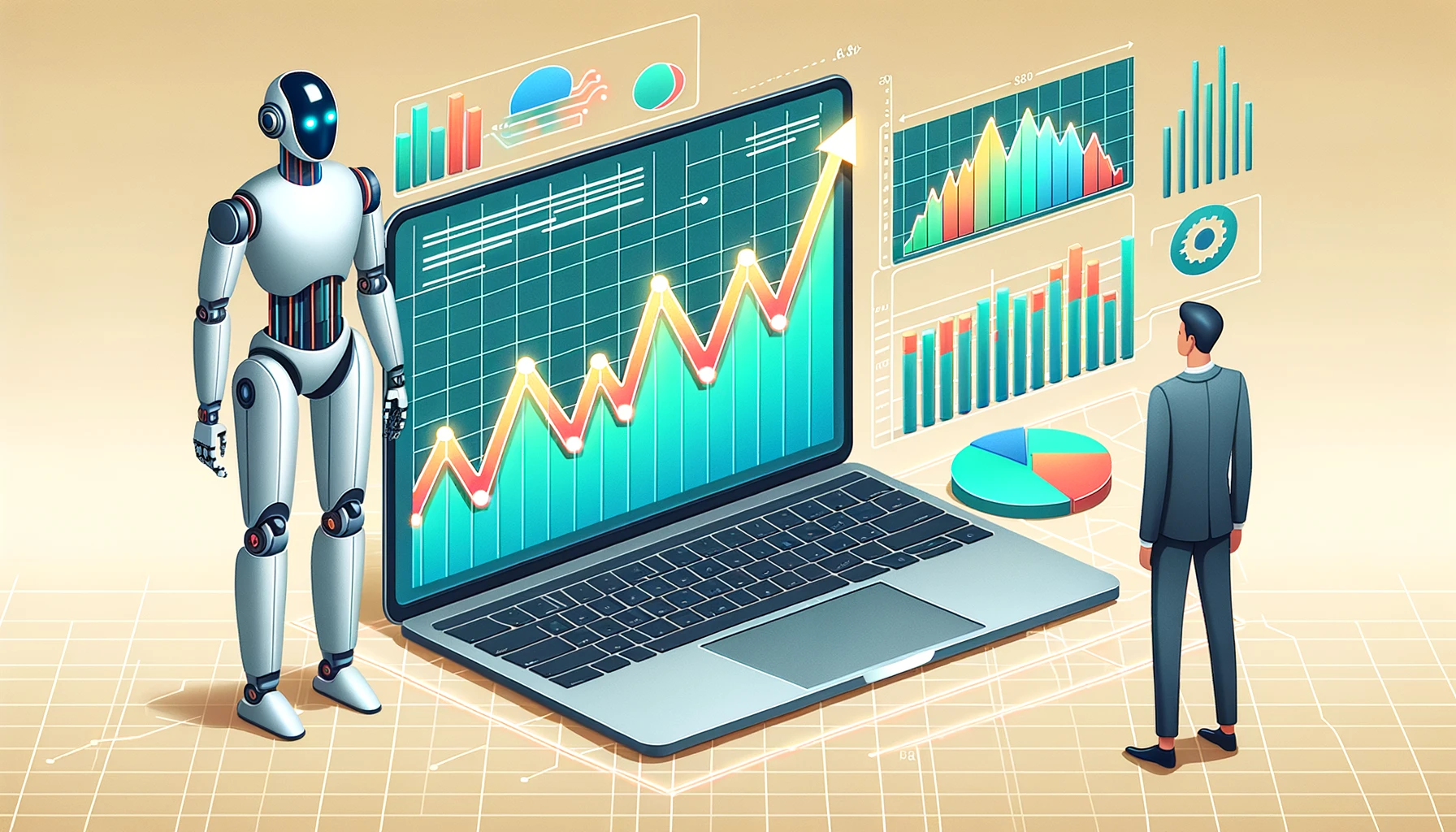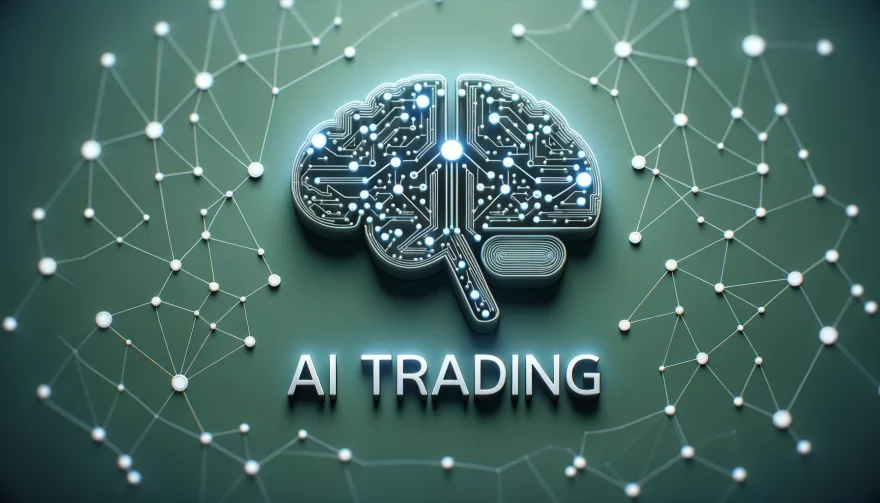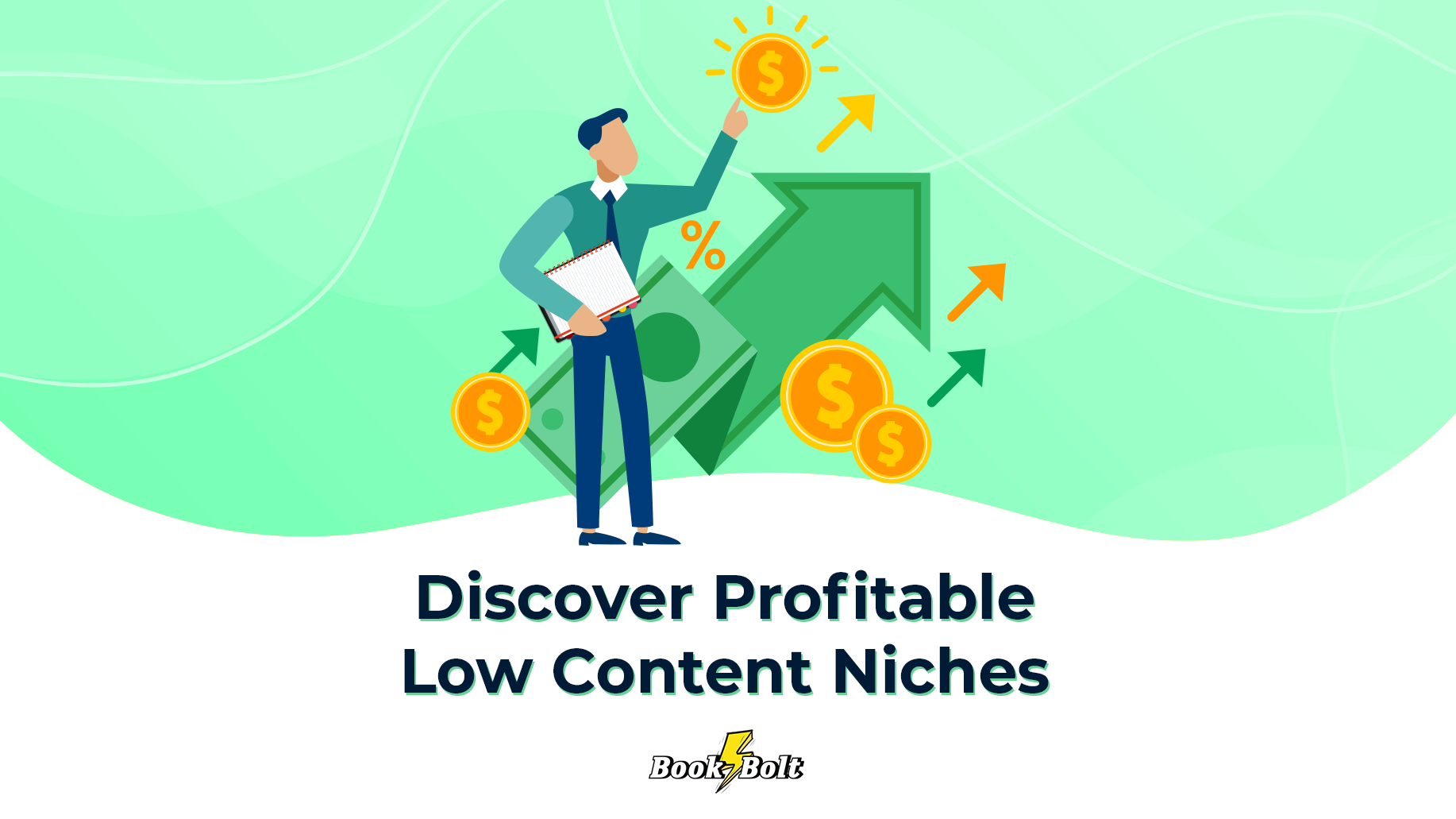The application of Artificial Intelligence (AI) in trading has been a hot topic in the financial world for quite a while now.
While automation and predictive analytics have already been in use for quite some time, the application of AI bots in this sector adds a new layer to the game.
However, the big question remains: Is AI trading profitable? Let’s dissect this query in detail, touching upon the advantages, disadvantages, and key players in this space.
What is AI trading?
AI trading, also known as algorithmic or quantitative trading, involves the use of machine learning algorithms to make trading decisions, analyze markets, or even execute trades automatically.
Unlike traditional trading, where decisions are made by human traders, AI systems can analyze large sets of data and execute trades at superhuman speeds.
AI’s advantage lies in its ability to analyze data 24/7, identifying trends and making predictions with unprecedented accuracy.
If you are looking to implement AI in your trading ventures, then consider taking this short but detailed AI trading course.
Is AI trading profitable?
The answer is not a simple yes or no. While AI offers the promise of high profitability through quick, emotion-free, and diversified trading, there are also risks and costs involved. Your mileage with AI trading will depend on your understanding of both the financial markets and the technology itself.
For more insights into AI trading algorithms and strategies, I recommend you read “Advances in Financial Machine Learning” by Marcos Lopez de Prado is highly recommended.
No products found.
Advantages of AI trading
High-frequency trading

One of the most profitable applications of AI in trading is High-Frequency Trading (HFT).
By executing thousands of trades within milliseconds, HFT aims to take advantage of tiny price gaps that are generally too small for humans to exploit.
Risk management and mitigation
AI algorithms can predict market downturns and other financial risks. They consider various parameters like market volatility, social signals, and economic indicators to make well-informed trading decisions.
They can then automatically take actions to mitigate losses.
Data analysis
AI can process vast amounts of data rapidly, identifying trends and patterns that might be difficult or time-consuming for humans to spot.
It can also process not just numerical data but also unstructured data like news articles, social media posts, and more to inform trading decisions.
Emotion-free decisions
AI doesn’t suffer from emotions like fear or greed, which can sometimes lead to irrational trading decisions in humans.
To understand the psychology of trading, consider reading Trading in the Zone by Mark Douglas.
Disadvantages of AI trading
Overfitting
An AI model may be too perfectly tailored to past data, making it less adaptable to new, unforeseen market conditions.
Technical glitches
Software bugs or connectivity issues can lead to significant losses.
Dynamic markets
Financial markets are influenced by a multitude of unpredictable factors, including political events, natural disasters, or sudden economic shifts, which an AI might not be programmed to understand or predict.
Regulatory hurdles
AI trading is still a new frontier, and regulatory bodies like the SEC are still figuring out how to govern these systems. Compliance can be a challenge.
Human oversight
While AI trading has advantages, human oversight remains crucial. Experienced traders can interpret qualitative data, news, and events that might not be immediately apparent in quantitative data.
Initial investment
Setting up an AI trading system can be expensive, requiring sophisticated software, data feeds, and sometimes high-frequency trading infrastructure.
Lack of creative insight
AI lacks the human touch of creativity, which might sometimes be needed to spot unique trading opportunities or navigate unprecedented situations.
Notable AI trading platforms
If you’re interested in getting started with AI trading, there are platforms that are already quite powerful:
- Trading Ideas
- MetaTrader 5
- Stock Hero
- Tickeron
- Trend Spoder
- Etoro, etc.
Is AI trading for everyone?
No. AI trading requires a level of expertise in both finance and technology. Retail investors may find it challenging to compete with institutional traders who have more resources at their disposal.
However, for those who can invest in the right technology and expertise, AI trading can offer potentially higher returns than traditional methods.
Conclusion
So, is AI trading the future of finance? Probably. Is it a guaranteed money-maker? Definitely not. But with the right strategy, it certainly has the potential to be.
If you’re considering AI trading, it’s advisable to start with a well-researched strategy and possibly consult with professionals in the field.
Last update on 2025-04-03 / Affiliate links / Images from Amazon Product Advertising API



